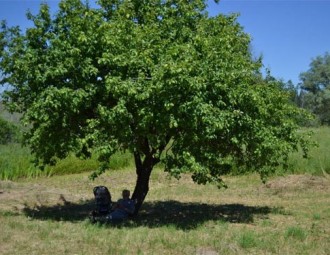A fairy tale about the Flying school, or a story of one passion

Just in the middle of the summer a wonderful Flying University school starts at the sun-lit meadows, lakeshores, and desolate villages of borderlands…
The Flying University School lives at this place for only four days; days, full of mosquito ringing and glasses clinking, full of sun and stars over the tents, full of loud discussions and silent meditations. Every year I go to the school because it is there where I feel the highest excitement and energy of muscles in my head the existence of which I didn’t even suspected.




Not many researches of wonders know about the Flying School. And even if they do they are unlikely to get out from the writing desks to go to some unfamiliar land for something fugitive, immense, and obscure. And, let me tell you, that’s not bad – only those who have the urge to move to something unknown, those who change lives, themselves, and the world around come to meet the Flying school.
The Flying University Summer School 2015 ended. And its participants are already posting photos to Facebook; organizers are writing reports, and “board holders” – new concepts and development trajectories.
Whereas I’m rethinking meanings over and over, reevaluate books, change words in life mottos and principles as a constant student. The number of courses I need to listen to; books that need to be read; terms that need to be understood – the school of constant self-determination. “Pouring form” of primordial search for the best way for my country, society, and person.
And what is the most important – the participants of the school do not stop surprising and inspiring me year after year.




Where else can you swim in the middle of the lake with the respected Valiantsin Akudovich and Mihail Bajaryn, stop there between the sky and the earth and discuss modern tendencies in European romance philology?
Where else can one sit near the fire with seeds and listen to the detailed interpretation of a memorable “transcendental unity of apperception” and its several meanings that Uladzimir Matskevich discovers in it?
Borderlands, where a certain cultural setting was created that cannot even be found in the “U” Gallery in Minsk that is 200 km away from here. People come here for the lost serenity, for the smell of old house, for the sunset over the lake. It is no coincidence that the Flying University School landed there amid our true and primordial expanses.





What is the difference between patriotism and love, what should philosophy of education do – there are enough questions for the next year! The school was successful. It was a greenhouse with the proper temperature and humidity for such a capricious and rare species – thinking.
You can find more photos at the page of the Flying University on Facebook.

-
03.01
-
07.10
-
22.09
-
17.08
-
12.08
-
30.09



























